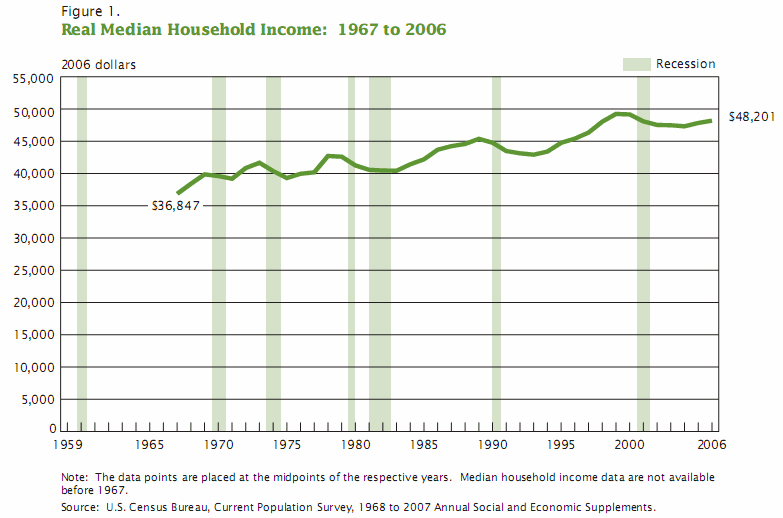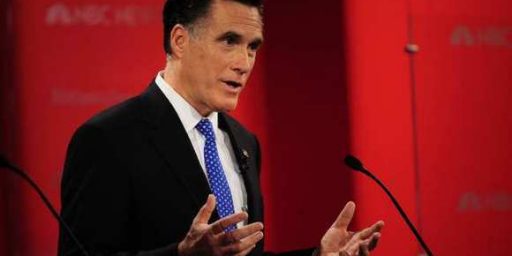Income and Voting
 Paul Krugman provides a spreadsheet showing that, as family income rises, so does the tendency to vote Republican. As of the 2004 election, Democrats won handily among voters in households with incomes under $30,000 a year and Republicans won among those with households of $50,000 and higher; the $30,000-$49,999 bracket is essentially a wash, with Democrats having a 50-49 edge.
Paul Krugman provides a spreadsheet showing that, as family income rises, so does the tendency to vote Republican. As of the 2004 election, Democrats won handily among voters in households with incomes under $30,000 a year and Republicans won among those with households of $50,000 and higher; the $30,000-$49,999 bracket is essentially a wash, with Democrats having a 50-49 edge.
That Tucker Carlson repeatedly says otherwise is apparently of great interest to Krugman and Media Matters. Otherwise, I’m not sure how much this helps Democrats. While it ostensibly reinforces the “Republicans are the party of the rich” meme, few people, indeed, think $30,000 is the magic threshold dividing the middle class from the elite. Indeed, even $50,000 is just barely above the median. From the Census Bureau:
I’m not sure that “Party of people without a halfway decent job” is really an ideal platform. Perhaps, “Vote for us and we’ll help you become a Republican” would work?
UPDATE: Julian Sanchez points to a 2004 piece by Daniel Gross noting the interesting counter-factual that really rich people tend to vote Democrat.
The petit bourgeoisie millionaires were passionately for Bush: Those worth between $1 million and $10 million favored Bush by a 63-37 margin. But the haute millionaires, those worth more than $10 million, favored Kerry 59-41.
[…]
But at some point, millionaires get so rich that they don’t really have to worry about how to pay the mortgage, or for that new Bentley. And if you can live off the tax-free interest of your municipal bonds, it really doesn’t matter whether the top marginal income tax rate is 33 percent or 39 percent.
Again, though, I’m not sure how this helps the Democrats. “If you don’t care how much of your money the government takes, vote for us” isn’t exactly catchy, either.







Perhaps matching the voting pattern to the effective tax rate would help. Not just what the marginal rate is, but what percentage of income is actually paid in taxes.
I suspect the effect is even more exaggerated if you exclude local, city, county, state, and federal workers from the mix i.e. private sector only.
High marginal tax rates can reduce competition for being part of the really really rich from the up-and-comers. If you have positional values — e.g., you care about your spot in the Forbes 400 — you might prefer higher tax rates to hold back the hordes.
In any case, I don’t see Joyner’s point in bashing the Krugster over this. Of course he didn’t deny that in 2004 (when the Dem-Rep vote split almost 50-50) the Dem majority among people below the median income about equalled the GOP majority among people above that income — it couldn’t be otherwise. His point was that Tucker Carlson is trying to spread the meme — so beloved among GOP propagandists — that Rich Elitists Are Liberals. JOYNER may not think that public awareness of the real income-to-party relationship would hurt the GOP; but Carlson and most Republicans definitely do.
Oh how I hate “real median household income”.
Households keep getting smaller.
“Income” doesn’t include employee benefits, which have become a greater percentage of compensation over time.
The “real” includes health insurance expenses as part of the deflator, while … see preceeding paragraph.